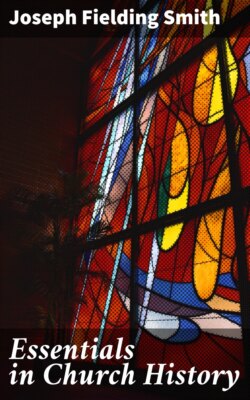Читать книгу Essentials in Church History - Joseph Fielding Smith - Страница 150
На сайте Литреса книга снята с продажи.
The Atonement and Eternal Punishment Explained
ОглавлениеTable of Contents
The most important teaching in this revelation was the doctrine of the atonement and the explanation of the expression “eternal punishment.” “I am Alpha and Omega,” said the Lord, “yea, even I am He, the beginning and the end, the Redeemer of the world. I have accomplished and finished the will of him whose I am, even the Father, concerning me—having done this that I might subdue all things unto myself, retaining all power, even to the destroying of Satan and his works at the end of the world, and the last great day of judgment, which I shall pass upon the inhabitants thereof, judging every man according to his works and the deeds which he hath done.
“And surely every man must repent or suffer, for I, God, am endless; wherefore, I revoke not the judgments which I shall pass, but woes shall go forth, weeping, wailing and gnashing of teeth, yea, to those who are found on my left hand. Nevertheless it is not written that there shall be no end to this torment, but it is written endless torment. Again it is written eternal damnation; wherefore it is more express than other scriptures, that it might work upon the hearts of the children of men, altogether for my name’s glory. Wherefore I will explain unto you this mystery, for it is mete unto you to know even as mine apostles. …
“For behold, the mystery of Godliness, how great is it? for, behold, I am endless, and the punishment which is given from my hand, is endless punishment, for Endless is my name; wherefore—
Eternal punishment is God’s punishment.
Endless punishment is God’s punishment.”
Then follows the statement that Jesus Christ “suffered the pains for all, that they might not suffer if they would repent.” These sufferings were most exquisite and sore, which caused him “the greatest of all, to tremble because of pain, and to bleed at every pore, and to suffer both body and spirit;” and would that he “might not drink the bitter cup and shrink.” Nevertheless he partook of that cup and finished his work, and this that men might not suffer if they would repent; but if they will not repent then they must suffer even as he.
